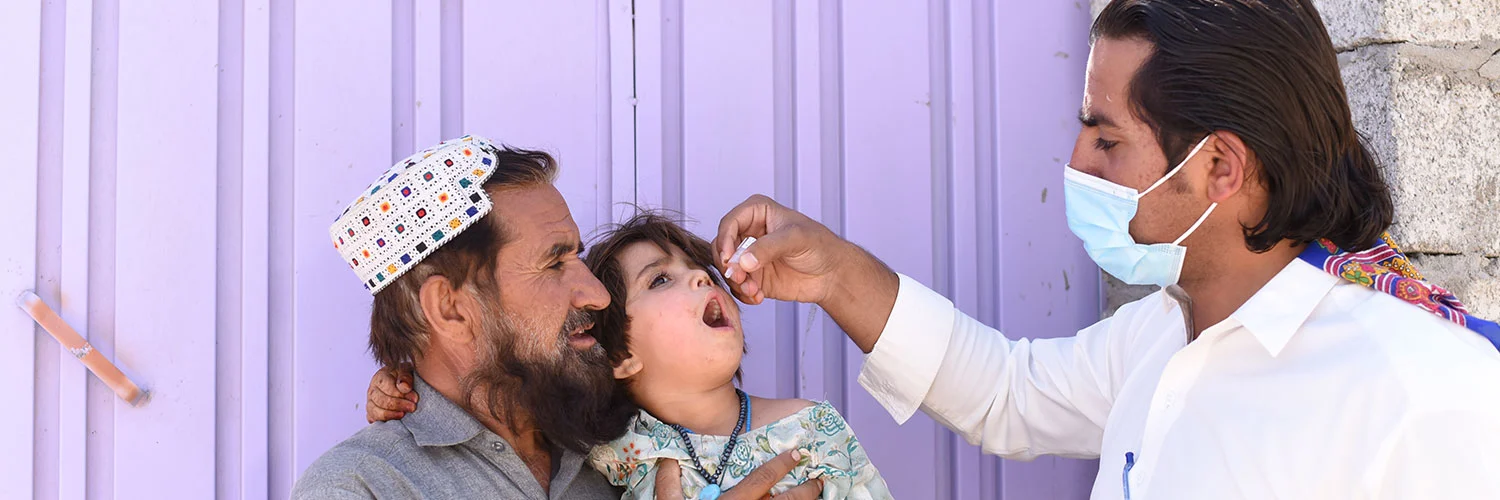Senior leadership of Rotary International praises Pakistan Polio Programme’s efforts to meet global goal of interrupting poliovirus transmission this year and vows continued support.
Islamabad, May 11, 2023 – A high-level delegation of senior leaders of Rotary International visiting Pakistan has met with Prime Minister Shehbaz Sharif and the senior leadership of the Pakistan Polio Eradication Initiative and reaffirmed Rotary’s continued support for polio eradication in Pakistan.
The delegation, which included International PolioPlus Committee Chair Mike McGovern, Rotary International Director Muhammad Faiz Kidwai and Trustee/PolioPlus Committee National Chair Aziz Memon, called on PM Shehbaz Sharif on Thursday, and also visited the polio control room at the National Emergency Operations Centre (NEOC) for Polio Eradication.
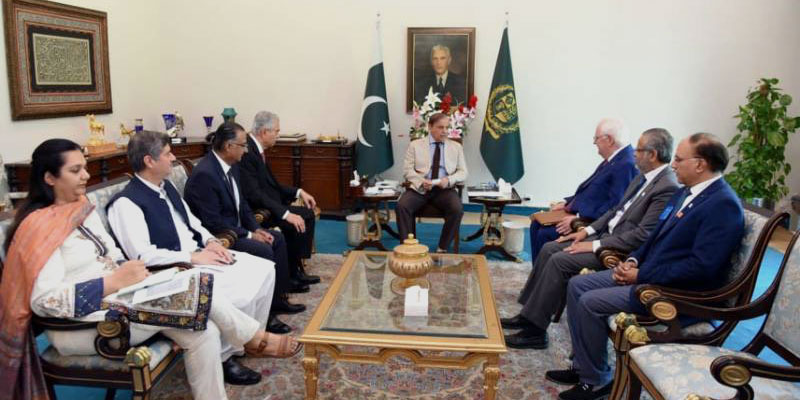
In the meeting with the PM, the delegation appreciated the progress of Pakistan’s Polio Programme and highlighted their concerns about children that remain inaccessible to vaccinators because of insecurity, particularly in high-risk areas.
Prime Minister Shehbaz Sharif lauded Rotary’s contribution and commitment to Pakistan and said that law-enforcement agencies are providing unparalleled support to the Polio Programme in all campaigns and will continue for as long as needed.
“Polio eradication is one of the top priorities for me and my government. We are working hard to bring Pakistan into the ranks of polio-free countries,” the PM said.
The delegation thanked the Prime Minister for his sustained commitment and oversight of polio eradication efforts in the country.
Earlier, the Rotary International delegation visited NEOC, met with senior polio leadership and was briefed on programme progresses.
NEOC Coordinator Dr Shahzad Baig thanked the guests for visiting Pakistan at a crucial time as it positions itself to interrupt wild poliovirus transmission this year, in line with the global polio eradication strategy.
He said: “Through intensive efforts this past year, the Polio Programme has contained poliovirus to a small area in southern Khyber-Pakhtunkhwa, where we are working with a heightened sense of urgency to reach every last child with the vaccine and prevent any further transmission.”
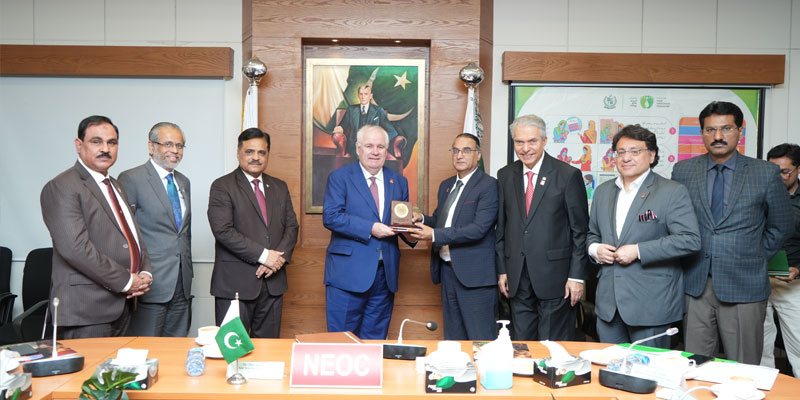
Dr Shahzad Baig added: “Visits such as these from senior Rotary leadership from Pakistan and abroad are highly significant at this critical point for the Programme. They highlight the fact that all eradication partners stand united behind a common goal – to protect children and deliver the Rotarian dream of a polio-free world.”
International PolioPlus Committee Chair Mike McGovern appreciated the Programme’s efforts to reduce the number of cases, its focus on cross-border vaccination and all initiatives to improve immunization rates in vulnerable communities.
“It is heartening to see how close Pakistan is to the finish line, and at this crucial moment in the path to eradication, Rotary International is fully committed to continuing its support to the Pakistan Polio Programme,” he said.
He added that a grant of USD 54 million is also under consideration and will be discussed at the annual Rotary gathering in summer this year for approval by International PolioPlus Committee members.
Mr Faiz Kidwai and Mr Aziz Memon also appreciated the successes of the Polio Programme and highlighted the need to continue quality campaigns and targeted interventions to reach the end goal of eradication.
Rotary International is a founding member of the Global Polio Eradication Initiative and has contributed more than USD 2.2 billion to global polio eradication efforts – over USD 400 million of this contribution has been provided to Pakistan alone.
Rotary supports polio eradication in Pakistan through high-level political, military and bureaucratic advocacy as well as engagement with ulemas and clerics to promote vaccine acceptance. It has donated more than 200,000 vaccine carriers for polio workers, installed 48 solar water filtration plants, provided shelters for teams at border crossings and permanent transit points and organized multiple health camps, among other initiatives.
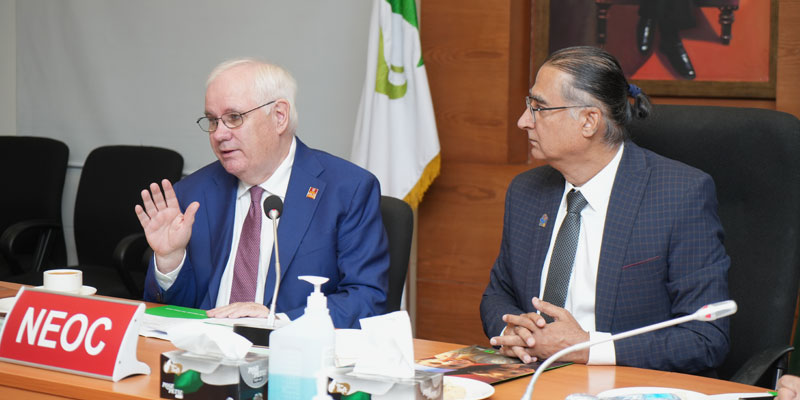
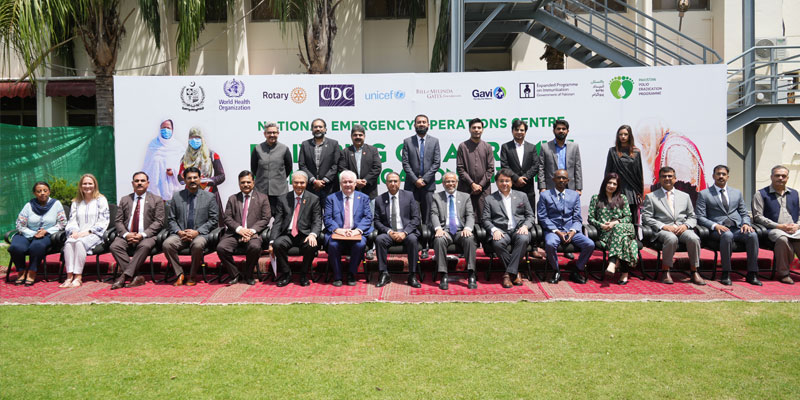
Note for the Editor:
Polio is a highly infectious and incurable disease caused by poliovirus, which mainly affects children under the age of five. The virus invades the nervous system and can cause paralysis or even death in some cases. There is no cure for polio, repeated vaccination is the most effective way to protect children. The polio vaccine has protected millions of children from polio, allowing almost all countries in the world to become polio-free. Pakistan and Afghanistan remain the only two endemic countries in the world.
For further information, please contact:
Mr. Zulfiqar Babakhel, Media Manager, NEOC, 0345-9165937
Email: This email address is being protected from spambots. You need JavaScript enabled to view it.

